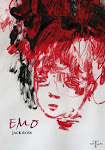Radiant Child, The
John M—– once, when I was in his house, told me a curious tale about himself. He was riding one night to Thirsk, when he suddenly saw passing him a radiant boy on a white horse. There was no sound of footfall as he drew nigh. Old John was first aware of the approach of the mysterious rider by seeing a shadow of himself and his horse flung before him on the high-road. Thinking there might be a carriage with lamps, he was not alarmed till by the shortening of the shadow he knew that the light must be near him and then he was surprised to hear no sound. He thereupon turned in the saddle and at the same moment the radiant boy passed him. He was a child of about eleven, with a bright, fresh face. “Had he any clothes on, and if so, what were they like?” I asked. But John was unable to tell me. His astonishment was so great that he took no notice of particulars.[*] The boy rode on till he came to a gate which led into a field. He stopped as if to open the gate, rode through, and all was instantly dark.


.jpg)
